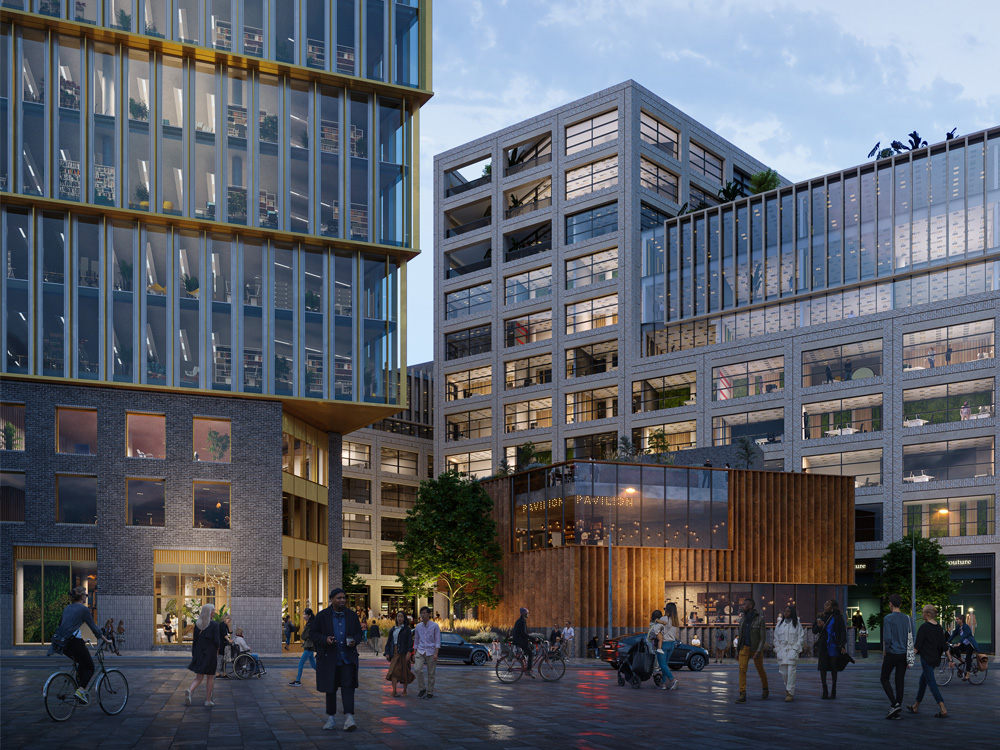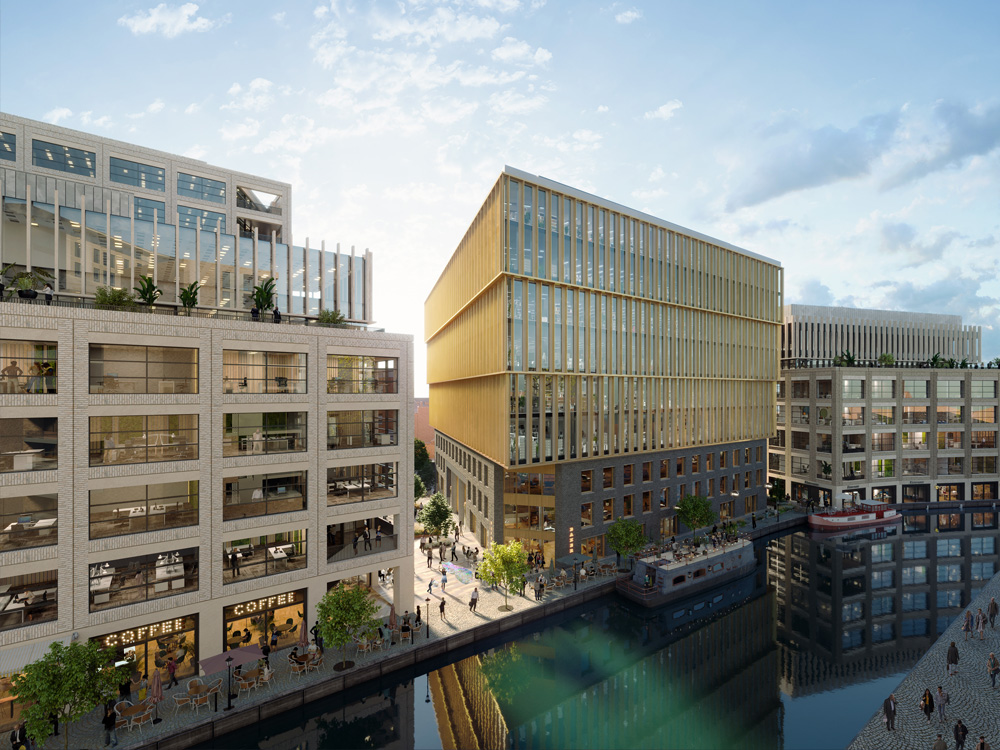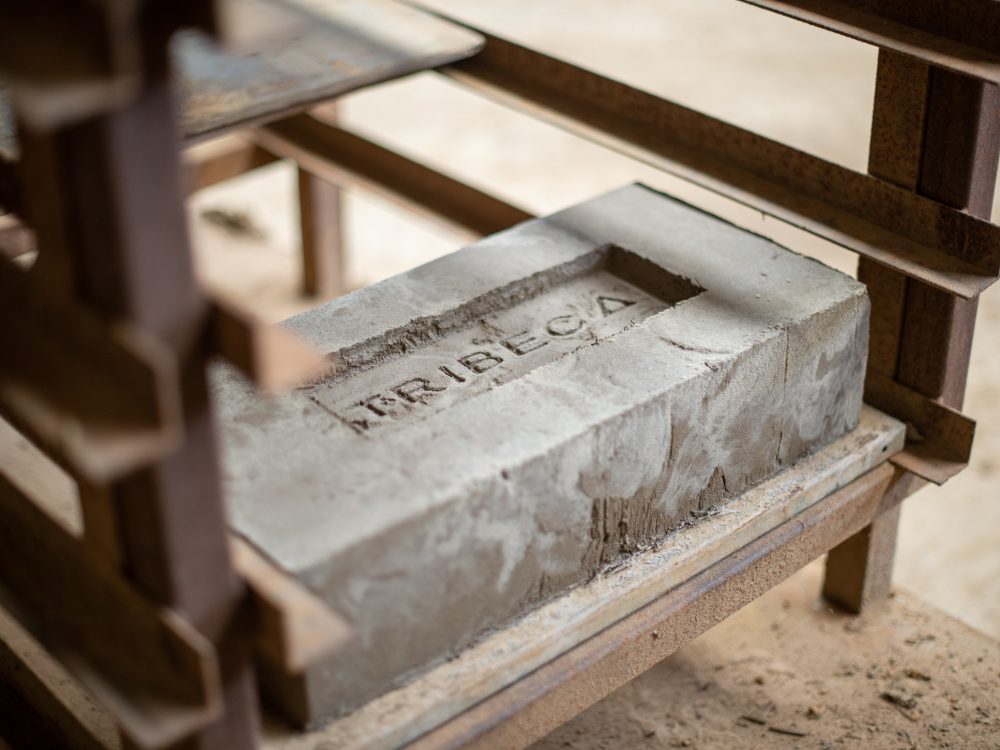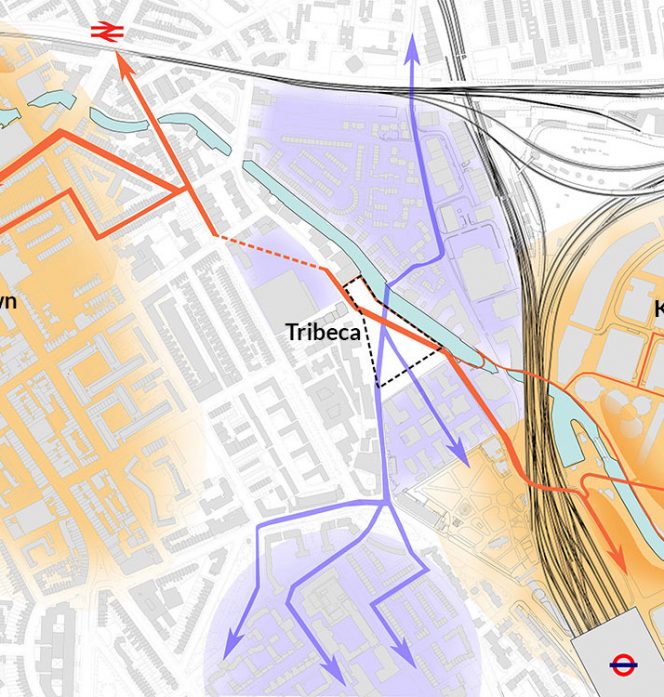Designing for the future
Tribeca lies at the heart of the emerging London Knowledge Quarter – a focal point for life science education, research and development – spearheaded by world renowned institutions such as Francis Crick Institute, London BioScience Innovation Centre, Alan Turing Institute and the Wellcome Trust.
A dazzling array of resources are located a skip and a jump away, making up the dynamic and interconnected knowledge community that Tribeca will soon form an integral part of.
The Tribeca quintet is designed with future longevity and adaptability in mind. The building envelopes are arranged around external and internal ‘streets’ that create a permeable ground plane and an accessible canal edge, inviting the wider public into the site for the first time in over a century.
Tribeca will play host to an eclectic composition of ingredients: shops, bars and restaurants; maker spaces; start-ups and incubators; small, medium and large enterprises; state-of-the-art laboratories; and mixed tenure homes, including 50% affordable provision.

The blend of occupiers and activities will generate a lively community where collaboration and ideas exchange can elevate businesses beyond their individual range. The highly flexible floorplates can be divided vertically and/or horizontally, and uses are interchangeable courtesy of generous ceiling heights and rational layouts. Units can expand and contract in size, merge and share facilities, encouraging individual companies to stretch outside their traditional silos. On floors with multiple tenants, communal spaces and circulation areas will nurture informal interaction and creative synergies.
Varied interiors can offer choice of where and how to work, balancing collaborative on location working with more focused home working, and inspiring a more productive and engaged workforce.

Conventional desk based spaces can be blended with break out areas, hot-desking and shared desks touchdown points, meeting and presentation rooms, and informal venues for interaction and entertaining.
Lab enabled spaces will cater specifically to life sciences and digital health markets. Education, research and commercial R&D users will have a variety of needs. Suites might vary from small and managed spaces for emerging businesses, to larger adaptable spaces for corporates that could include lecture theatres, laboratories and workspaces. Digital health companies with a focus on health related hardware and software development can adjust more traditional office spaces to suit their operations, which makes them less reliant on bespoke spaces and more footloose than the wider life sciences market.
It is anticipated that as many as 3,500 people across multiple sectors will work at Tribeca, contributing to the life and identity of the local community and the wider Knowledge Quarter. The neighbourhood is designed to welcome change and diversity, and it will evolve with the city around it and the vibrant community that inhabits it. As such the story of Tribeca is never complete, but continuously unfolding.


